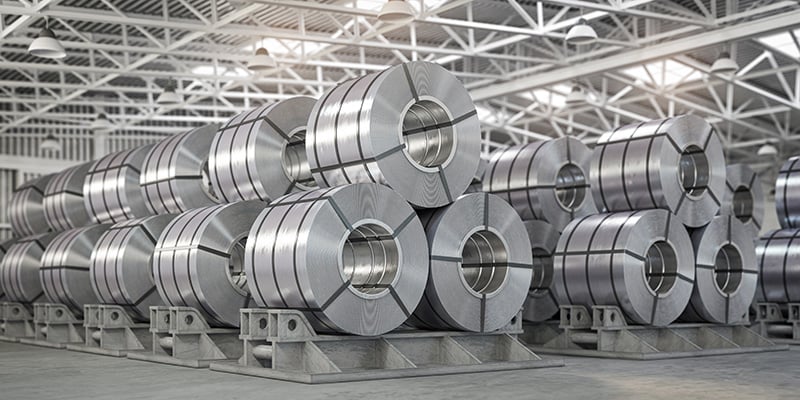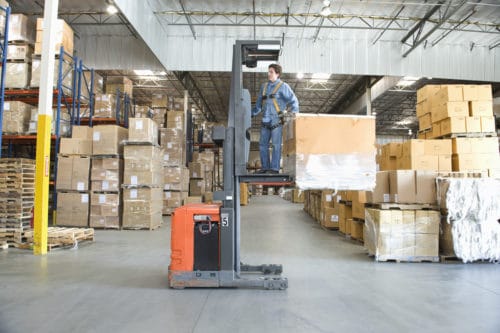Eco-Friendly Practices: Driving Adjustment with Bulk Container Recycling
Discover the Relevance of Industrial Packaging Recycling: Specialist Insights
It is vital to understand the importance of recycling industrial product packaging to alleviate the unfavorable effects on our planet. In this discussion, we will certainly dive into the expert understandings on this subject, discovering the benefits of recycling industrial packaging, professional pointers for reliable recycling, the obstacles entailed, and the future leads and developments in this area.
Ecological Influence of Industrial Product Packaging

Another environmental impact of industrial product packaging is the exhaustion of all-natural sources. The manufacturing of packaging materials calls for considerable amounts of power, water, and basic materials. This removal and intake of sources add to logging, water deficiency, and the damage of ecosystems. In addition, the production procedure of packaging products commonly involves the use of poisonous chemicals that can contaminate dirt, water, and air, positioning a threat to human health and wellness and the setting.
To minimize these ecological impacts, it is important to focus on sustainable packaging services. This includes taking on materials that are quickly recyclable, decreasing product packaging waste with reliable design, and promoting making use of renewable energies. Reusing programs must be executed to make sure that industrial product packaging materials are drawn away from garbage dumps and provided a second life. By resolving the ecological effect of industrial product packaging, we can relocate towards an extra responsible and sustainable strategy to packaging and add to the conservation of our planet for future generations.
Benefits of Recycling Industrial Product Packaging
Reusing commercial product packaging provides many advantages, both for the setting and for organizations seeking to embrace lasting methods. Among the crucial advantages of recycling is the decrease in waste sent to landfills. By recycling product packaging products such as cardboard, plastics, and metals, companies can reduce their environmental impact and conserve useful resources.
Recycling industrial product packaging also helps to preserve energy. In addition, reusing reduces greenhouse gas exhausts linked with the production of new packaging products.
An additional benefit of recycling commercial product packaging is the capacity for cost savings. By carrying out recycling programs, businesses can reduce waste disposal costs and possibly generate income by marketing recyclable materials. Reusing can likewise enhance a business's public picture and bring in ecologically aware clients that value sustainable methods.
Additionally, reusing industrial packaging can add to a round economic situation. By recycling materials and integrating them back into the manufacturing process, organizations can create a closed-loop system that lowers the demand for virgin products and advertises source performance.
Professional Tips for Effective Industrial Packaging Recycling
To optimize the effectiveness of commercial packaging recycling, professional expertise and methods are important. Industrial product packaging is designed to shield goods during transportation and storage space, and recycling it can aid reduce waste and conserve resources. Below are some expert pointers for effective commercial product packaging reusing:
Layout for recyclability: When picking packaging materials, consider their recyclability. Select products that are extensively accepted by reusing facilities and can be easily refined into new products - industrial packaging solutions. Avoid utilizing blended materials or complex packaging layouts that are hard to different and recycle.
Apply a reusing program: Develop a comprehensive recycling program that consists of clear standards for getting rid of and sorting of product packaging materials. Enlighten workers regarding the significance of recycling and offer correct training on how to recycle successfully.
Companion with recycling centers: Work together with regional reusing centers to understand their acceptance standards and requirements. Establish a partnership with a dependable recycling partner who can manage your commercial packaging waste effectively.
Reduce product packaging waste: Explore methods to decrease packaging waste by utilizing innovative style strategies, such as light-weight products and right-sizing product packaging. By minimizing the amount of packaging utilized, you can reduce the environmental influence and make reusing much easier.
Track and determine recycling initiatives: Screen and measure your reusing efforts to examine the performance of your program. Establish goals and targets for increasing recycling prices and constantly improve your recycling methods based upon the information gathered.
Obstacles in Industrial Product Packaging Recycling
Among the major difficulties dealt with in commercial packaging recycling is the absence of standard reusing techniques and infrastructure. Unlike home recycling, where there are clear guidelines and systems in position, industrial packaging reusing typically lacks a consistent technique. industrial packaging solutions. This lack of standardization makes it difficult for services to browse the recycling process effectively and properly
Industrial packaging is often made from a broad range of products, such as plastics, steels, and composite materials. Some industrial product packaging products, such as laminated plastics, are not easily recyclable, leading to enhanced waste and environmental effect.
In enhancement, the large volume of industrial product packaging waste can be frustrating. Industries produce a significant quantity of product packaging waste on a daily basis, and finding appropriate reusing centers to handle this volume can be a challenging task. This can lead to product packaging products being sent to land fill rather than being reused.
Furthermore, the lack of awareness and education and learning about commercial packaging recycling is one more challenge. Many businesses are not totally knowledgeable about the advantages of reusing their packaging materials or the readily available recycling alternatives. This lack of awareness leads to a missed out on opportunity to reduce waste and add to an extra lasting future.
To get rid of these obstacles, it is crucial for services to collaborate with recycling companies, federal government agencies, and sector organizations to develop standardized reusing techniques and infrastructure. This will not only enhance the reusing process but additionally guarantee that more packaging products are diverted from garbage dumps and recycled properly. Additionally, increasing understanding and providing education and learning about industrial product packaging recycling can help businesses comprehend the relevance of reusing and make informed choices concerning their packaging selections.
Future Potential Customers and Innovations in Industrial Product Packaging Recycling
With the challenges of standard methods and infrastructure in industrial product packaging recycling, the emphasis now changes towards exploring innovative options and future prospects to resolve these problems. As the need for lasting product packaging remains to grow, the industry is observing innovations in modern technology and procedures that aim to boost recycling rates and minimize environmental influence.
One appealing future prospect is the growth of smart product packaging products. These products are created to have actually installed sensors that can give details regarding their composition and problem. By using these sensors, recyclers can easily determine and sort various kinds of product packaging products, making the reusing process a lot more effective and cost-effective.
One more ingenious remedy is using innovative reusing modern technologies. Typical reusing techniques typically encounter difficulties plastic container manufacturer in successfully reusing complicated packaging products, such as multi-layered plastics. Advanced innovations, such as chemical recycling and pyrolysis, can break down these products into their fundamental elements, enabling a greater rate of recycling.

Verdict
By recycling industrial packaging, organizations can benefit from price financial savings, decreased waste, and boosted brand name photo. The future prospects of commercial product packaging recycling are encouraging, with advancements in innovation and technologies intended at enhancing recycling efficiency and reducing waste.
Reusing programs ought to be carried out to make sure that industrial packaging materials are drawn away from land fills and given a 2nd life. By resolving the environmental influence of industrial packaging, we can move in the direction of a more accountable and lasting strategy to product packaging and contribute to the conservation of our earth for future generations.
Reduce packaging waste: Discover methods to lessen packaging waste by utilizing cutting-edge layout methods, such as lightweight materials and right-sizing packaging. In addition, increasing understanding and supplying education and learning about commercial packaging recycling can aid services comprehend the importance of recycling and make educated decisions regarding their product packaging choices.
Standard recycling methods often encounter difficulties in successfully reusing intricate product packaging products, such as multi-layered plastics.